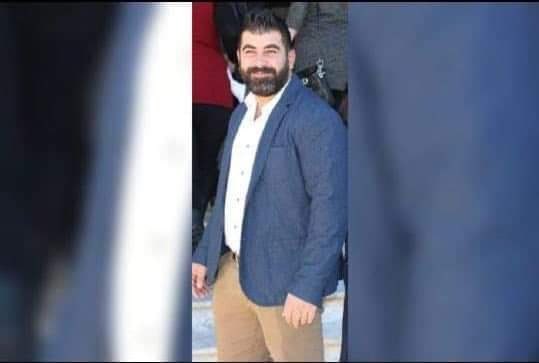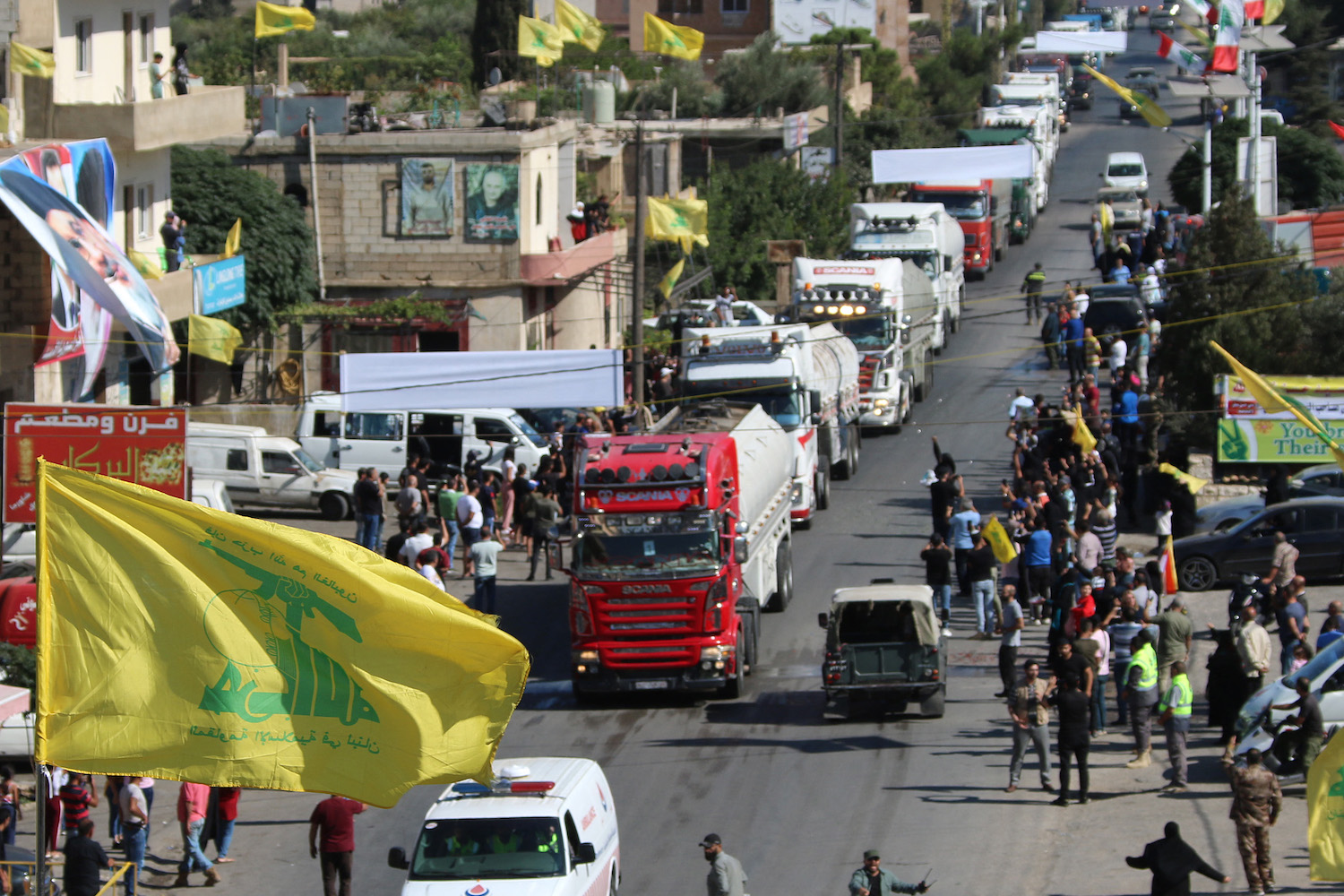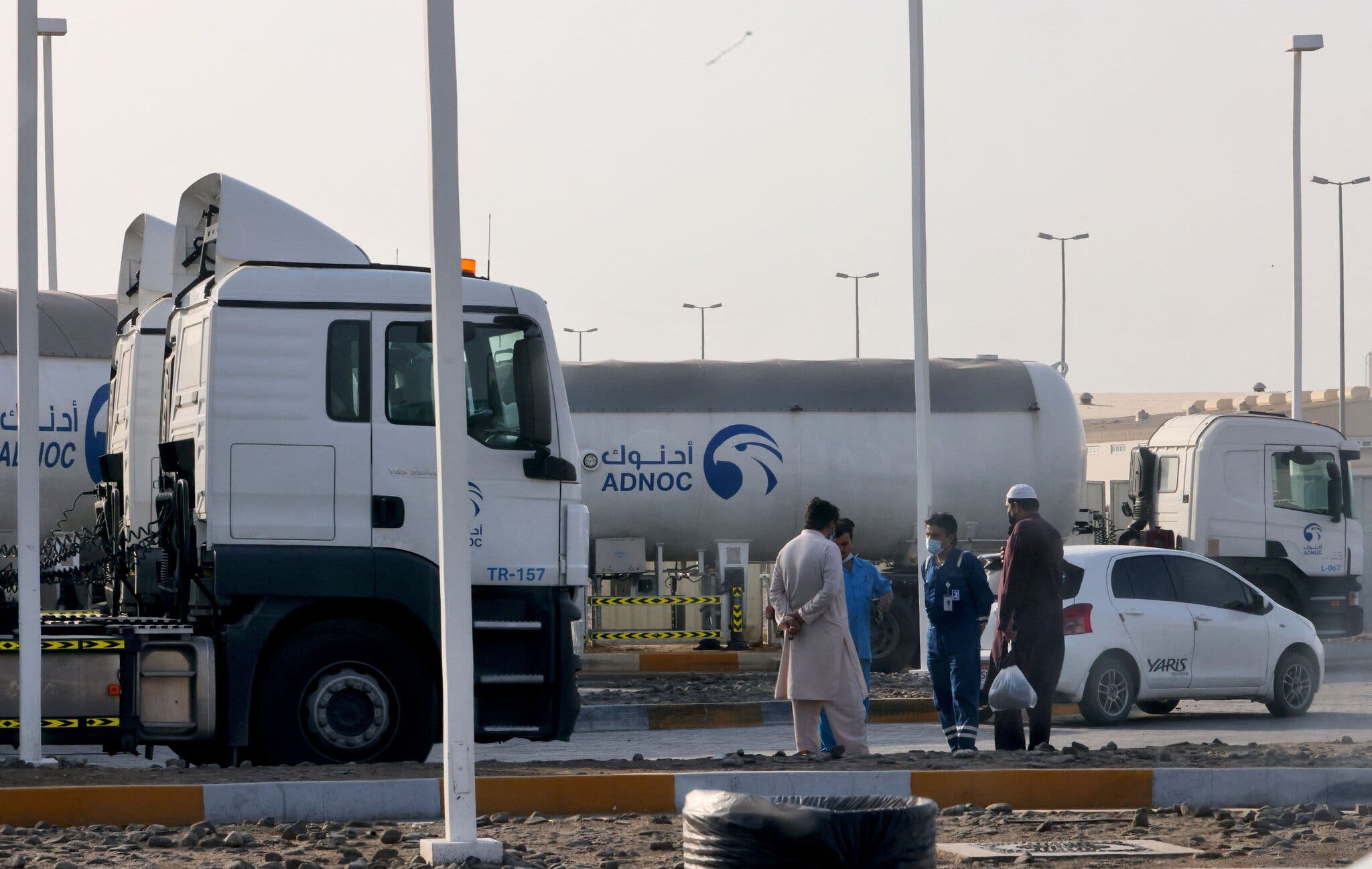
Lebanese man Abdullah Al-Saii was arrested Tuesday for taking people hostage and threatening to blow up a bank up as he attempted to withdraw his $50,000, began a hunger strike on Wednesday. (Social Media/Twitter)
By BASSAM ZAAZAA - arabnews.com -- BEIRUT: A Lebanese man arrested for taking people hostage and threatening to blow up a bank up as he attempted to withdraw $50,000 of his own money began a hunger strike on Wednesday. Abdullah Al-Saii was armed with a gun, grenade and bottles of benzene when he entered a branch of the Bank of Beirut and Arab Countries in Jeb Jannine in Bekaa Valley, eastern Lebanon, on Tuesday. He said that staff at the bank had refused his previous requests to withdraw his savings, blaming the economic and banking crisis in the country An Internal Security Forces official told Arab News that Al-Saii held more than 10 of the bank’s staff and customers hostage for several hours, demanding he be allowed to withdraw the money. He said he would blow up the branch if his demands were not met.
The building was cordoned off and the standoff was resolved following negotiations, the official added. “He surrendered himself after the bank gave the money to his wife and nobody was hurt,” said the ISF official. He added that Al-Saii began a hunger strike early on Wednesday afternoon after the attorney general’s office in Bekaa ordered the confiscation of the money. Mustafa Kammouneh, the mayor of Jeb Jannine, told Arab News that Al-Saii, a father of two, had lived abroad for most of his life and, like most depositors during the financial crisis in the country, has been denied access to his life savings. “What he did was totally understandable, especially given he needs money to support his family,” said the mayor. It was “totally expected and normal,” he added, considering the circumstances citizens have been enduring for the past two years. Al-Saii is from the village of Kefraya. It is believed that his wife disappeared with the $50,000 shortly after prosecutors ordered the money be confiscated, said Kammouneh, adding that the couple’s children are being cared for by their grandparents. When asked whether the wife, who is not Lebanese, had left the country, the mayor said only that he was sure she was no longer the village. A warrant has been issued for her arrest.

By Laura Kelly -- thehills.com -- The Biden administration on Tuesday issued sanctions against a Lebanese travel company and three businessmen for financially supporting Hezbollah, the U.S.-designated terrorist organization based in Lebanon. Secretary of State Antony Blinken said the sanctions designation was carried out “in solidarity with the Lebanese people, whose security and sovereignty remains threatened by Hizballah’s corrupt and destabilizing activities.” The sanctions target the business Dar Al Salam for Travel & Tourism and three of its founders, Adel Diab, Ali Mohamad Daoun, and Jihad Salem Alame.
The Treasury Department said all three men are members of Hezbollah and have “materially assisted, sponsored, or provided financial, material, or technological support for, or goods or services to or in support of” Hezbollah. “With this action, Treasury is disrupting businessmen who raise and launder funds for Hizballah’s destabilizing activities while the Lebanese people face worsening economic and humanitarian crises,” Under Secretary of the Treasury for Terrorism and Financial Intelligence Brian Nelson said in a statement. “Hizballah claims it supports the Lebanese people, but just like other corrupt actors in Lebanon that Treasury has designated, Hizballah continues to profit from insulated business ventures and backdoor political deals, amassing wealth that the Lebanese people never see.” The sanctions block any property or assets in the U.S. owned by the persons or the business and generally prohibit U.S. persons from engaging in transactions with the blacklisted individuals or businesses. While Americans are generally blocked from engaging in transactions with the sanctioned individuals, any person who engages in specific transactions runs the risk of being sanctioned by the U.S.
وطنية – شدد “لقاء الجمهورية” في بيان على “ضرورة عودة الحكومة إلى الانتاج وضرورة تسهيل مهمة رئيسها الهادفة إلى الحد من التدهور …

by nytimes.com -- Shuaib Almosawa, Vivian Yee and Isabella Kwai -- SANA, Yemen — The Iran-backed Houthi militia in Yemen attacked the United Arab Emirates on Monday in an apparent drone strike that blew up several fuel tankers and killed three people, according to state-run Emirati media and Houthi officials. The Houthis, who have fought a yearslong war with a Saudi-led military coalition that includes the United Arab Emirates, said they used drones and missiles in the attack. The Emirati government said the Houthis were responsible and the foreign ministry condemned it as a “cowardly act to spread terrorism and chaos in the region,” but did not say what weapons were used in the attack. “We reiterate that those responsible for this unlawful targeting of our country will be held accountable,” the ministry statement said. The Houthis in Yemen frequently target neighboring Saudi Arabia with drone strikes, including one on Saudi oil facilities in 2019 that severely disrupted the country’s oil exports, and they have also claimed strikes on the U.A.E. several times, though the U.A.E. has consistently denied it.
A minor fire also broke out in the Abu Dhabi International Airport, raising the possibility that it, too, was the target of a drone strike. The police in Abu Dhabi said there were indications that “small flying objects, possibly belonging to drones” started two fires, one at the airport and the other leading to the explosion of the three petroleum gas tankers in an industrial district in southwestern Abu Dhabi near storage tanks for the Abu Dhabi National Oil Company. The attack came amid a recent escalation of tensions between the Houthis and the Saudi-led forces in Yemen that has shifted the war’s momentum after months of Houthi gains. The ongoing offensives have complicated international efforts to broker a cease-fire to end the war, which has caused what aid groups call the world’s biggest humanitarian disaster.
Khazen History


Historical Feature:
Churches and Monasteries of the Khazen family

St. Anthony of Padua Church in Ballouneh
Mar Abda Church in Bakaatit Kanaan
Saint Michael Church in Bkaatouta
Saint Therese Church in Qolayaat
Saint Simeon Stylites (مار سمعان العامودي) Church In Ajaltoun
Virgin Mary Church (سيدة المعونات) in Sheilé
Assumption of Mary Church in Ballouneh
1 - The sword of the Maronite Prince
2 - LES KHAZEN CONSULS DE FRANCE
3 - LES MARONITES & LES KHAZEN
4 - LES MAAN & LES KHAZEN
5 - ORIGINE DE LA FAMILLE
Population Movements to Keserwan - The Khazens and The Maans
ما جاء عن الثورة في المقاطعة الكسروانية
ثورة أهالي كسروان على المشايخ الخوازنة وأسبابها
Origins of the "Prince of Maronite" Title
Growing diversity: the Khazin sheiks and the clergy in the first decades of the 18th century
Historical Members:
Barbar Beik El Khazen [English]
Patriach Toubia Kaiss El Khazen(Biography & Life Part1 Part2) (Arabic)
Patriach Youssef Dargham El Khazen (Cont'd)
Cheikh Bishara Jafal El Khazen
Patriarch Youssef Raji El Khazen
The Martyrs Cheikh Philippe & Cheikh Farid El Khazen
Cheikh Nawfal El Khazen (Consul De France)
Cheikh Hossun El Khazen (Consul De France)
Cheikh Abou-Nawfal El Khazen (Consul De France)
Cheikh Francis Abee Nader & his son Yousef
Cheikh Abou-Kanso El Khazen (Consul De France)
Cheikh Abou Nader El Khazen
Cheikh Chafic El Khazen
Cheikh Keserwan El Khazen
Cheikh Serhal El Khazen [English]
Cheikh Rafiq El Khazen [English]
Cheikh Hanna El Khazen
Cheikha Arzi El Khazen
Marie El Khazen